
Why are you in the UK? 11 EU citizens share their experiences (good and bad) of living in Brexit Britain

Ever since the referendum, EU citizens in the UK have been enduring great uncertainty, their future status unknown.
One of them, Susana De Dios, a photographer, decided to go out and picture and interview others living in the same precarious circumstances, to hear their stories – good and bad – of living in Brexit Britain. Here are those stories….
Begoña
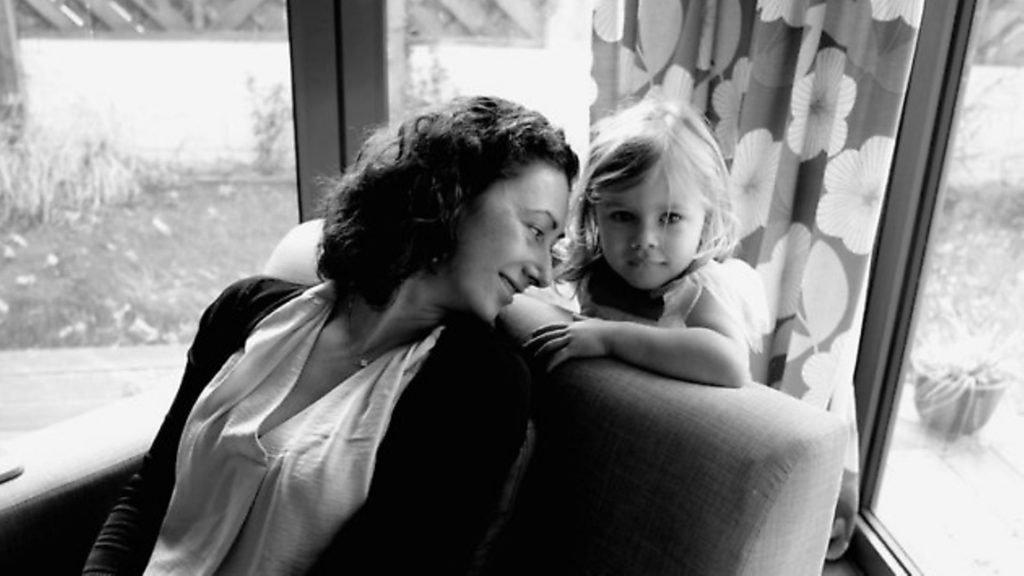
Begoña came to the UK from the Asturias region of Spain 12 years ago to improve her command of English. She worked as a waitress while perfecting the language and, thanks to her background in economics and her knowledge of Spanish and English, was soon able to find a position in the international finance sector. Her plan was to use this experience to build up her CV and return to Spain with a better chance of finding a job there. However, she soon met the man she would marry, decided to stay in the country, and gave birth to a daughter four years ago.
Begoña has worked for the same company, a global leader in branded lifestyle apparel, footwear and accessories, for the past 11 years, first on a customer service role for the Spanish market and now running the customer service department for the European and South American markets.
‘I get the feeling that the UK was never fully involved in the European Union, their heart just wasn’t in it. I think the result was partly due to do with lack of employment. When there is an economic recession people start thinking that others are taking their jobs away from them, when in fact a lot of immigrants who come here do the jobs that no one else wants to do. Or in my case, the jobs that British people wouldn’t necessarily be qualified to do. ‘We get a lot of CVs for positions with foreign languages for the European market, and most of them don’t have the level required, they just wouldn’t be able to do the job. ‘This is why people like myself come to work here, we are not stealing work from anybody. I have a young daughter and I am worried for her, she was born in England but she has both her dad’s and my surname [as is the Spanish tradition]. ‘I’m worried about how people might perceive her because of that, and because she has a Spanish mum, I worry that perhaps she won’t fit in when she is older. ‘The other day we asked her whether she felt English or Spanish. She wouldn’t say at first but this morning she proudly declared ‘I am English, Mummy!’. I can’t help but worry though, as a parent you worry about a lot of things. The whole situation is a roller-coaster of emotions. You are OK for a while and getting on with your life and then something comes up in the news, you hear about the March deadline for triggering Article 50, and suddenly things become very real and the worry and anxiety start all over again. ‘I don’t know… For a very long time I have felt that this is my home, but things have changed, I don’t feel that way anymore, I could leave tomorrow.’
Yvonne
Yvonne came to the UK from Germany in 2010 to study economics at a London university as part of the Erasmus exchange programme. After completing her studies in the UK she went back to Germany to finish her degree and then returned to the UK to take up an internship working for a start-up company as a sporting and social events organiser for international students. She then took up a position with the British Medical Association as an events organiser for a period of four years. After meeting her current partner they both moved to a different part of the country, where he had been offered a place to study medicine.
Since 2015 Yvonne has been working for a builders’ merchant and home improvement retailer in the international sales department. Unsure about what the situation in this country will be in the coming years, Yvonne is hoping to train as a teacher and move to Spain with her partner in the future.

‘When I read the news (about the referendum) I laughed, it was so unexpected, I just couldn’t believe it. Some of the people at my work were really happy, they didn’t seem to sympathise with me at all.
‘No one came to me the whole day to say I am so sorry for you, not even my manager. My colleague and I are both European and we bring a lot of money into the company, yet no one came to us to reassure us that we were still welcome. It was really upsetting that no one asked how I was feeling. One of my colleagues told me that it was their choice who they wanted to include as a country, that it was up to them and that I had to accept that. I was shocked and upset…
‘When I arrived in London I was really surprised to see so many foreign people on the bus, but then I thought ‘Well, actually, this is England’, it’s so international and it was so nice to be in such an open and inclusive country. You don’t have that kind of integration in many other EU countries. ‘I think the whole immigration issue is just a tool of distraction to deflect from the country’s own issues regarding cuts and privatisation. It’s so transparent, I am surprised some people can’t see it.’
Jadwiga
Jadwiga came to the UK from Poland in 2010. She found employment as a warehouse worker, a job she did for the first year and a half, combining it with a part-time teaching position at a Polish school. She was then able to move on to office work, temping for an infrastructure company as an office administrator. Following this, she worked in the probation sector as part of a learning and development team, coordinating training for probation officers.
Jadwiga is currently working as a personal development coordinator for an organisation that helps individuals struggling with homelessness, offending, substance misuse and mental health problems. In her role, she works in a team to support people, coordinating projects and referring those in need to the services and resources that can help them.

‘I try not to worry about things I have no control over, and I feel pretty secure here because of my job and my house. It [Brexit] was like a slap in the face, it was so surreal I didn’t really believe it. I sensed the effects overnight, the situation totally flipped, like before people had to respect you but now they have invisible permission to victimise you. It’s awful.
‘My friend who works closely with the Polish community is telling me horror stories about how they are now being victimised not just by some people in this country, but by other nationalities as well. I am hearing a lot of stories about Polish people not being served well at stores, cashiers being unpleasant to them, and things like that make you feel not so welcome here….
‘On the other hand, the day after the referendum my manager went out and bought all Polish workers flowers to show his appreciation and that we are welcome. That was amazing, and this is what I hold on to, more than the prejudice that might be out there.’
Simona
Simona moved to the UK from Italy in 2009. She holds a diploma in Business and International Studies, however, after taking cello lessons in her hometown she realised that her true calling was pursuing a career in music. Once in England she worked in a pub for a few years, joined a folk band and immersed herself in the local music scene, collaborating with musicians and singer-songwriters and performing with orchestras in a wide variety of festivals across the country.
In 2014 she received a scholarship to purchase a new musical instrument and enrolled to study a BA in Music Performance in one of the country’s leading conservatoires, which she will finish next year. After completing her studies, Simona would like to carry on working in the music industry, either in a performing or teaching role.

‘I love the idea of multiculturalism and having the diversity of many different communities. Being positive I don’t think it [Brexit] will seriously threaten that, and even if life in the UK is going to be slightly more difficult for Europeans from now on, multiculturalism is still too strong to actually stop it or harm it in a serious way, there’s too much going on.
‘It wouldn’t even be convenient, I presume, for the country itself to lose so many workers and students as these people coming along make many different contributions that need to be taken into account as well.
‘I have friends who supported Leave and their reasons were more financial than related to immigration. Irrespective of how people voted, I think we have to see past our differences and try to work together somehow…
‘I’m aware that those in support of Britain leaving the EU are hoping for a beneficial change to come from it and even if personally I still cannot see the advantages of such a choice that doesn’t mean there isn’t one. Ultimately, I like to believe that things will work out in respect of everyone’s needs and in the less divisible way possible.’
Amaya
Amaya was adopted by a German mother and a Spanish father and lived in various countries throughout her childhood before finally settling in Brussels, where she completed her International Baccalaureate. he then moved to Madrid to study at Universidad Carlos III, where – being from a different background – she encountered an unwelcoming atmosphere and found it challenging to fit in. She stayed in Madrid for a year and then moved to the UK in 2006 in search of a more tolerant and inclusive experience, which, happily, she found.
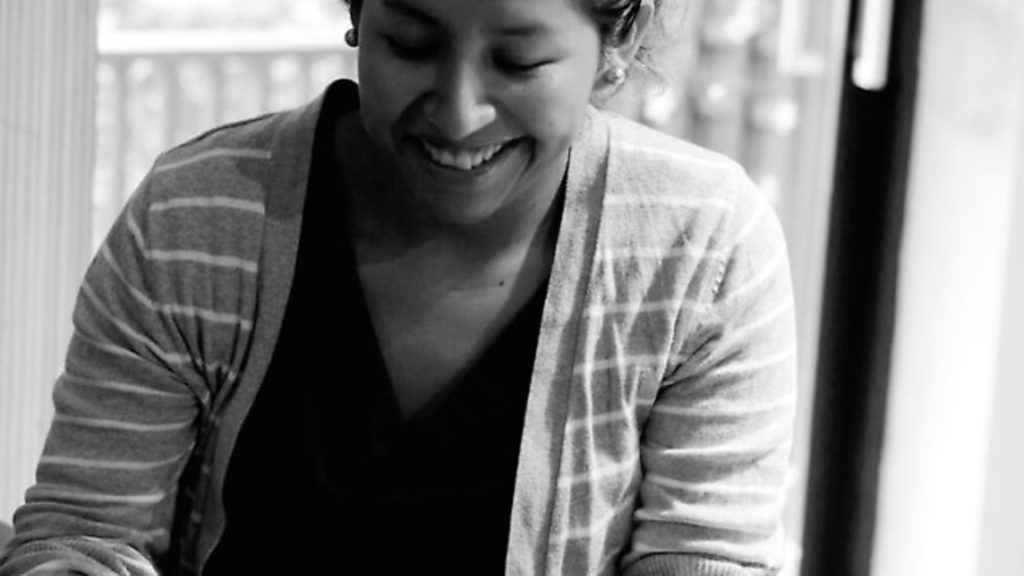
Soon after arriving in the country, Amaya started a Degree in Economics and, after completing her studies, spent the following year and a half doing volunteering work with refugees and local organisations helping the most vulnerable in society.
She then moved to the Netherlands for a year to study European politics at postgraduate level. However, after encountering much of the same atmosphere she endured in Madrid, Amaya decided to return to England and shortly after found a job at the Citizens Advice Bureau, where she still works today.
‘To me it was traumatic, like a car crash. You don’t experience the full range of emotions right away, they come later, like a delayed reaction. I am now more involved in politics, I want to know what the opposition are doing, I travel to London regularly to attend conferences and events. There are many of us in this situation, we have to get organised.
‘Some of my European friends feel anxious about speaking in English with an accent, they are worried about giving themselves away as foreign. This isn’t a feeling that’s just going to go away, like flicking a switch, it is traumatic and it will take years.’
Alzbeta
Alzbeta came to the UK in 2014 from Slovakia to pursue her passion for music. After completing her A-levels in one of Slovakia’s most prestigious bilingual grammar schools, she applied to university in the UK through UCAS and was accepted into a BA in Music (Jazz) course, which she will complete in May 2017.
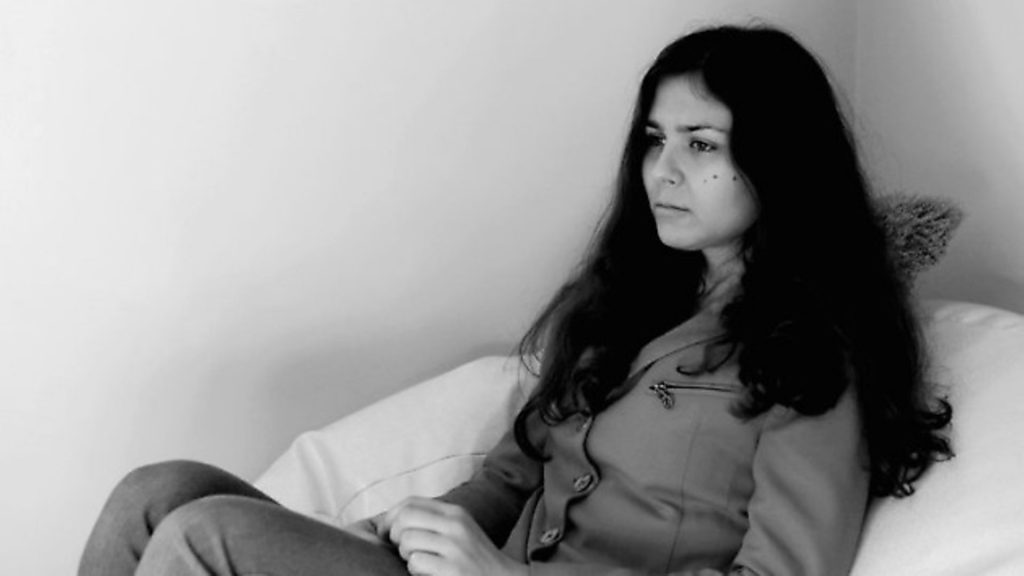
With no previous training in jazz music, Alzbeta came to the UK not knowing what to expect. Here she found a welcoming multicultural community and a thriving jazz music scene, where she regularly performs. She regards her decision to move to this country as the best decision she has made in her life. After completing her degree, Alzbeta would like to continue her studies in music and is currently applying to Masters programmes both here and in other European countries. However, she is open-minded about her future and is also considering taking a gap year to explore another one of her passions – studying to become a yoga instructor in India.
‘I always used to think of myself as Central European, not Eastern European, at least that’s what we were taught at school, but everyone here thinks I’m from Eastern Europe. I do understand that it is because I come from a Slavic background.
‘I think some British people are not aware of what’s happening in the east or in other parts of Europe. I do understand why this kind of discrimination came to be – because they don’t understand what these people [Eastern European immigrants] are going through, why they move to this country and why they choose to stay here…
‘I’d love to be able to be a part of British society and not be looked upon as a foreign person who shouldn’t be here, or who is exploiting the system. There are people out there who are much worse for society, and they don’t come from Eastern Europe.’
Michèle
Michèle arrived in the UK from the Vendée region of France in 1997. While studying for a postgraduate degree in english literature in Nantes, she obtained a position as a language assistant at a British university, a job she held for two years. fter this, she remained in England and started a postgraduate degree in education to become a French teacher. After completing her studies she worked in various schools across the East Midlands for a period of 10 years.
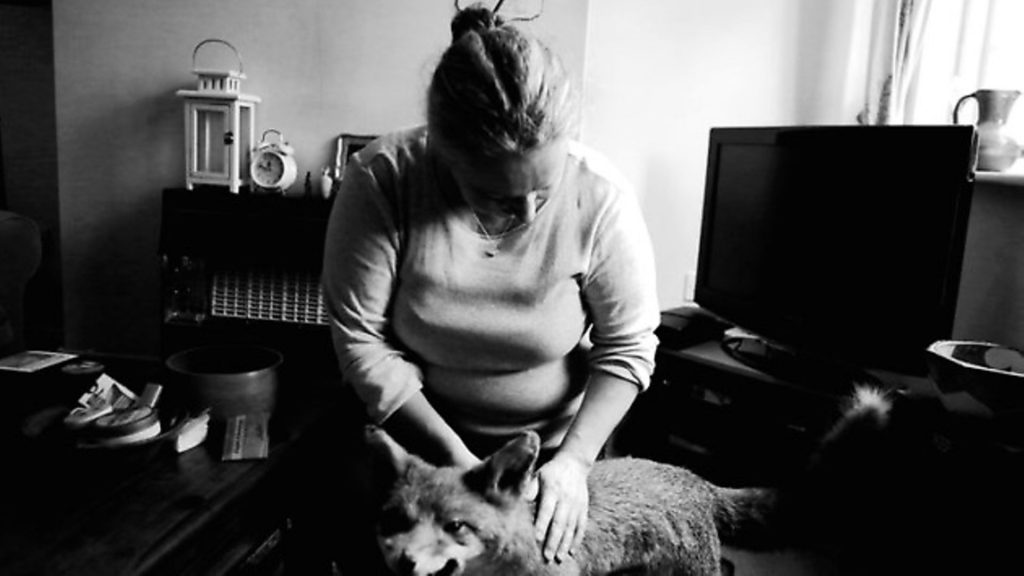
Following this, she decided to take a break from teaching and completed a Diploma in Environmental Conservation, trained as a park ranger and did volunteering work for the National Trust.
However, finding paid work in the environmental sector proved difficult, so Michèle went back to the teaching profession and started working in special needs schools and then in a pupil referral unit as a teacher for vulnerable children. She hopes she can one day combine her love of teaching with her love for the environment.
‘I was very sad when it [Brexit] happened. For the first time in 20 years I felt like I wasn’t welcome. I have been working and paying my taxes, I am teaching difficult groups that nobody else wants to teach, it’s not like I am stealing work from anybody.’
Maria and Simon
Maria came to the UK from Madrid and holds a degree in Spanish and Latin American studies from the Universidad Complutense. She arrived in the country in 2014 and since then has taught Spanish in the higher education sector. She is currently enrolled in a Masters programme to further her skills as a Spanish language teacher. In the future, Maria would like to develop her own Spanish-teaching business, using her passion for cooking as a medium for teaching the language.
Simon was born in the UK to an English father and a Spanish mother. Although British by birth, he identifies more with his Spanish side. He holds a Bachelor of Arts in English and Spanish from Oxford University and a PhD in Spanish theatre from Queen Mary University of London. Simon has travelled between the two countries his whole life. In 2008 he moved to Spain and began working for a theatre company in Madrid. In 2013 he returned to the UK to work as a university lecturer, a position he still holds now.
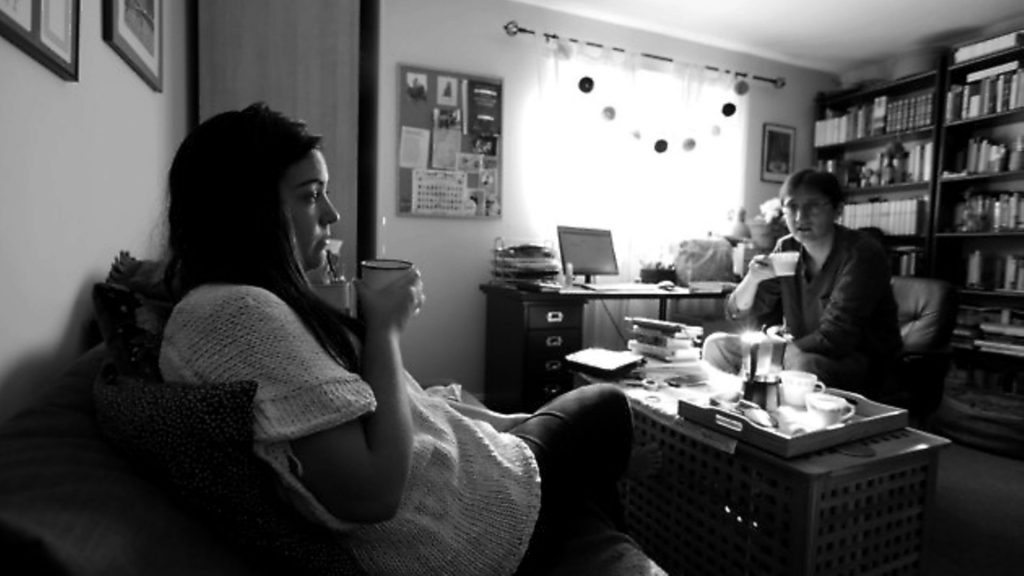
Simon: ‘Some people say that the Leave vote was a vote of punishment against Cameron and the Tories, but I think the voters are only punishing themselves. I see no positives at all in this situation. Things seem to have calmed down but you can already see some repercussions.’
Maria: ‘[Brexit] made me question whether this was really the place for me in the long term. I felt left out at a time when I was working hard to fit in and adapt to British culture. However, I have had a lot of support from some sectors of society, like work colleagues and my own students.’
Anna
Anna comes from Barcelona and has lived in the country since 2008. She got married in 2009 and has a young son who has just started school.
Since arriving, Anna has worked in the hospitality sector and later on in human resources and sales for various companies. In 2015 she retrained as a nutritional coach and now runs her own fitness and nutrition business, which focuses on the emotional aspects of weight gain.
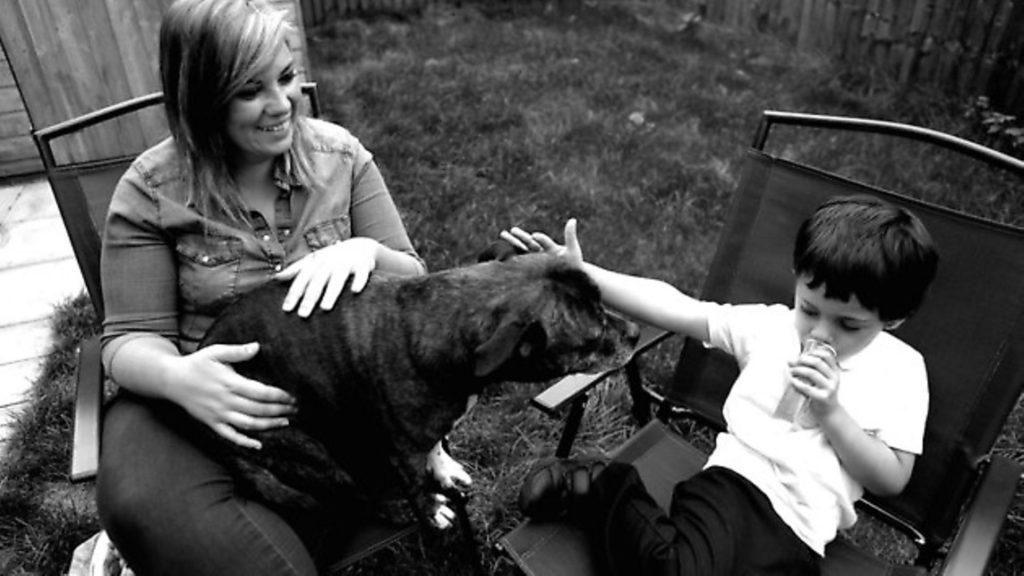
‘Since the referendum I have felt more support and kindness from English people than ever before. I am happy and content in this country and I always try to focus on the positive. I am not worried about it, we’ll just have to wait and see what happens.’
Inma and Andres
Inma and Andres come from Andalucía in Spain and have lived in the UK since 2011. They are married with a young son, who was born in England in 2013.
Andres worked as a locum pharmacist and is now setting up El Cuervo – his own bilingual theatre company. Inma has worked as a researcher in microbiology in the higher education sector and is now working as part of the scientific team of a British natural nitrogen technology company.

‘After the referendum we felt fear, frustration, anger, a strong feeling of being unwanted.
‘We felt it was very irresponsible of politicians to pit one section of the population against another for their own interests, not valuing foreign workers like us for the contribution we make to the development of this country.’
Monica
Monica was born in northern Spain and has lived in the UK since 1998. She is married with two young sons.
Through the years she has worked as a special needs teaching assistant, carer in an old people’s home, and shop manager before completing an MSc in environmental water management in 1999 and starting working as a hydrologist in the year 2000 and in integrated environment planning later on, a position that she still holds now.
‘I am not concerned about my situation as an EU National in the UK, perhaps because I have been here for longer than the London Eye and I am both practical and resourceful, or it could be that I am still a bit in denial, I wouldn’t know.’
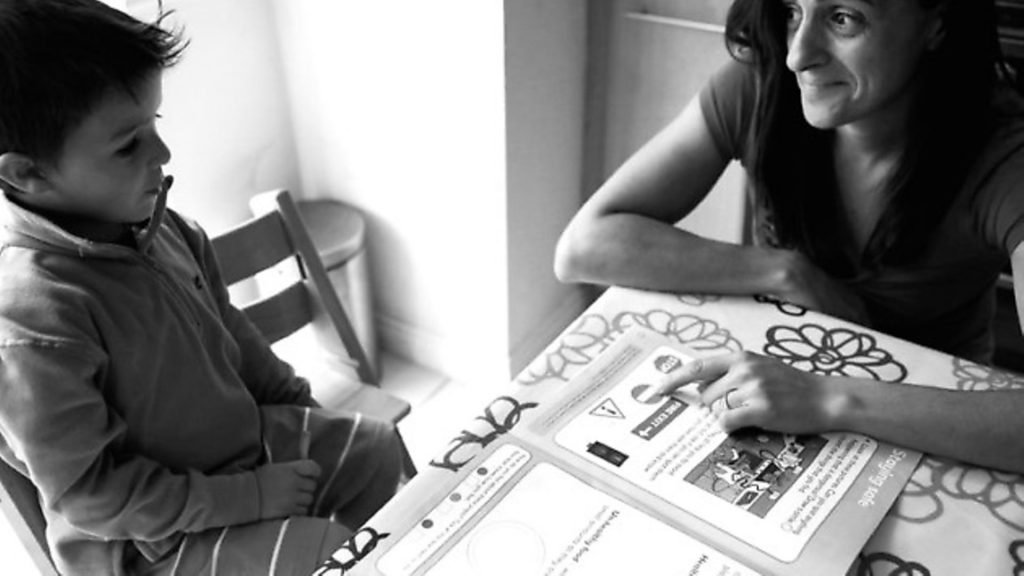
The Photographer: Susana de Dios
‘I wanted to offer a window into the lives of EU nationals in Britain. After the referendum result I thought it would be interesting – and important – to put real faces and real-life stories to the statistics and shine a light into the human aspect of the current situation.’
www.dediosphoto.com/athomephotoblog
Follow de Dios on Twitter @dediosphoto
Warning: Illegal string offset 'link_id' in /mnt/storage/stage/www/wp-includes/bookmark.php on line 357
Notice: Trying to get property 'link_id' of non-object in /mnt/storage/stage/www/wp-includes/bookmark.php on line 37






